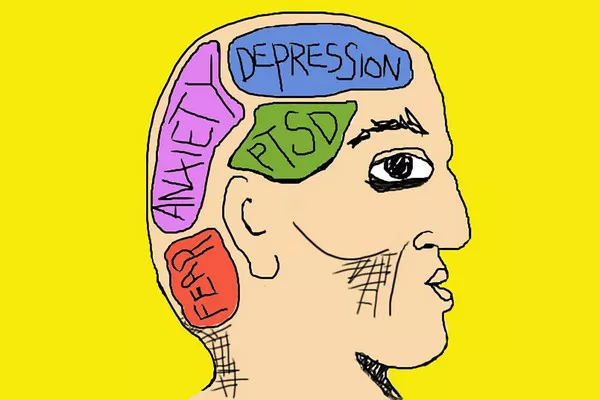Living with a chronic illness is a journey that extends beyond physical symptoms. The impact of chronic illnesses reaches into the realm of mental health, often shaping emotions, thoughts, and overall well-being. In this article, we will delve into the intricate relationship between chronic illness and mental health. From exploring the psychological toll of chronic conditions to understanding coping mechanisms and seeking support, we aim to shed light on the multifaceted nature of this connection.
The Psychological Toll of Chronic Illness
1. Emotional Responses
Chronic illness can trigger a range of emotions, from frustration and sadness to anxiety and anger. The uncertainty surrounding the condition’s progression and treatment can lead to heightened stress levels.
2. Identity and Self-Esteem
For many individuals, chronic illness can alter their sense of identity and self-esteem. Adjusting to changes in physical abilities or appearance can challenge one’s self-concept and body image.
3. Grief and Loss
Chronic illness may evoke feelings of grief and loss, not only for the life one had before the illness but also for the activities and experiences that may now be limited or inaccessible.
See Also: A Comprehensive Exploration of Common Mental Health Problem
The Mind-Body Connection
1. Impact on Mental Health
The mind-body connection is a powerful force. Chronic illness can trigger or exacerbate mental health conditions, such as depression and anxiety, as well as contribute to the development of psychosomatic symptoms.
2. Pain and Mental Health
Physical pain associated with chronic illness can have a profound impact on mental health. Pain-related stress, sleep disruption, and decreased quality of life can all contribute to emotional distress.
Coping Mechanisms and Strategies
1. Emotional Coping
Individuals with chronic illness often develop emotional coping strategies, such as mindfulness, meditation, and journaling, to manage stress, anxiety, and overwhelming emotions.
2. Social Support
Seeking support from friends, family, and support groups can offer validation and comfort. Connecting with others who share similar experiences can help combat feelings of isolation.
3. Professional Help
For those struggling with chronic illness-related mental health challenges, seeking professional help from therapists, counselors, or psychologists can provide valuable tools for managing emotional well-being.
Challenges in Seeking Help
1. Stigma and Misunderstanding
Stigma and misunderstanding surrounding mental health can create barriers to seeking help for individuals with chronic illnesses. Some may fear being labeled as “weak” or “attention-seeking.”
2. Importance of Advocacy
Advocacy plays a vital role in raising awareness about the mental health challenges faced by those with chronic illnesses. Breaking down stereotypes and fostering understanding can encourage individuals to seek the support they need.
Strategies for Managing Mental Health
1. Holistic Approach
Taking a holistic approach to health involves addressing both physical and mental well-being. Incorporating stress-reduction techniques, exercise, and healthy nutrition can positively impact mental health.
2. Establishing Routines
Creating daily routines and maintaining a sense of structure can provide stability and a sense of control, which can be particularly important for individuals navigating the unpredictability of chronic illness.
3. Setting Realistic Goals
Setting achievable goals, both big and small, can boost self-esteem and contribute to a sense of accomplishment. Celebrating milestones, no matter how small, can have a positive impact on mental health.
See Also: 7 Ways to Help People with Mental Health Problems
Conclusion
In conclusion, the relationship between chronic illness and mental health is complex and multifaceted. The emotional responses, identity shifts, and coping mechanisms that emerge from living with chronic conditions underscore the need for comprehensive support and understanding. Recognizing the impact of chronic illness on mental health and proactively seeking strategies for managing emotional well-being can lead to improved quality of life and resilience. Whether through emotional coping strategies, seeking social support, or engaging in professional help, individuals can navigate the challenges of chronic illness while nurturing their mental health. It’s essential to recognize that mental health matters as much as physical health and that addressing both aspects holistically is a powerful step toward achieving overall well-being.


